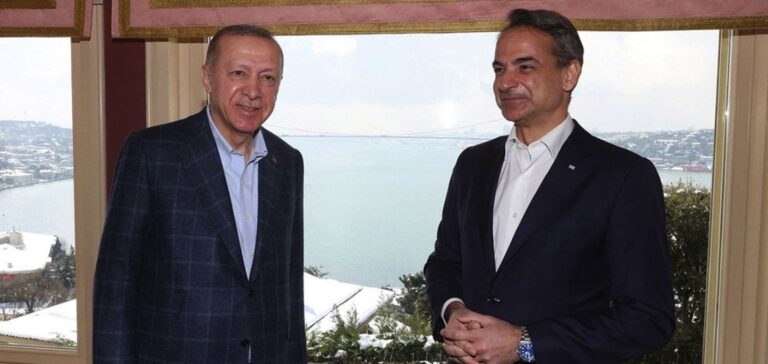Greek Prime Minister Kyriakos Mitsotakis said on Thursday he hoped to resolve their historic dispute with neighboring Turkey over the delimitation of their maritime zones before the International Court of Justice in The Hague, which has jurisdiction over the law of the sea.
The Greek Prime Minister wants the International Court to intervene in the dispute with Turkey
“My main objective is to resolve our main dispute with Turkey, that of the delimitation of maritime zones”, said Kyriakos Mitsotakis in an interview with the Skaï channel, the day after his meeting with Turkish President Recep Tayyip Erdogan on the sidelines of the Nato summit in Vilnius.
This would mean first reaching an agreement with Ankara “so that the International Court can take up this case, which has been pending for decades”, he added, in an allusion to the UN judicial body based in The Hague.
Kyriakos Mitsotakis, who was returned to power for a second term following the June 25 elections in Greece, nevertheless felt that reaching agreement with Ankara on this issue “was not an easy matter”. Athens and Ankara have long been at loggerheads over the delimitation of the exclusive economic zones and continental shelf of the Greek islands in the Aegean Sea, close to the Turkish coast, and consequently over energy exploration rights in this area of the eastern Mediterranean.
Exploratory talks between experts from the two countries began in 2000 in an attempt to resolve this issue, but have been interrupted several times to date with no result.






















